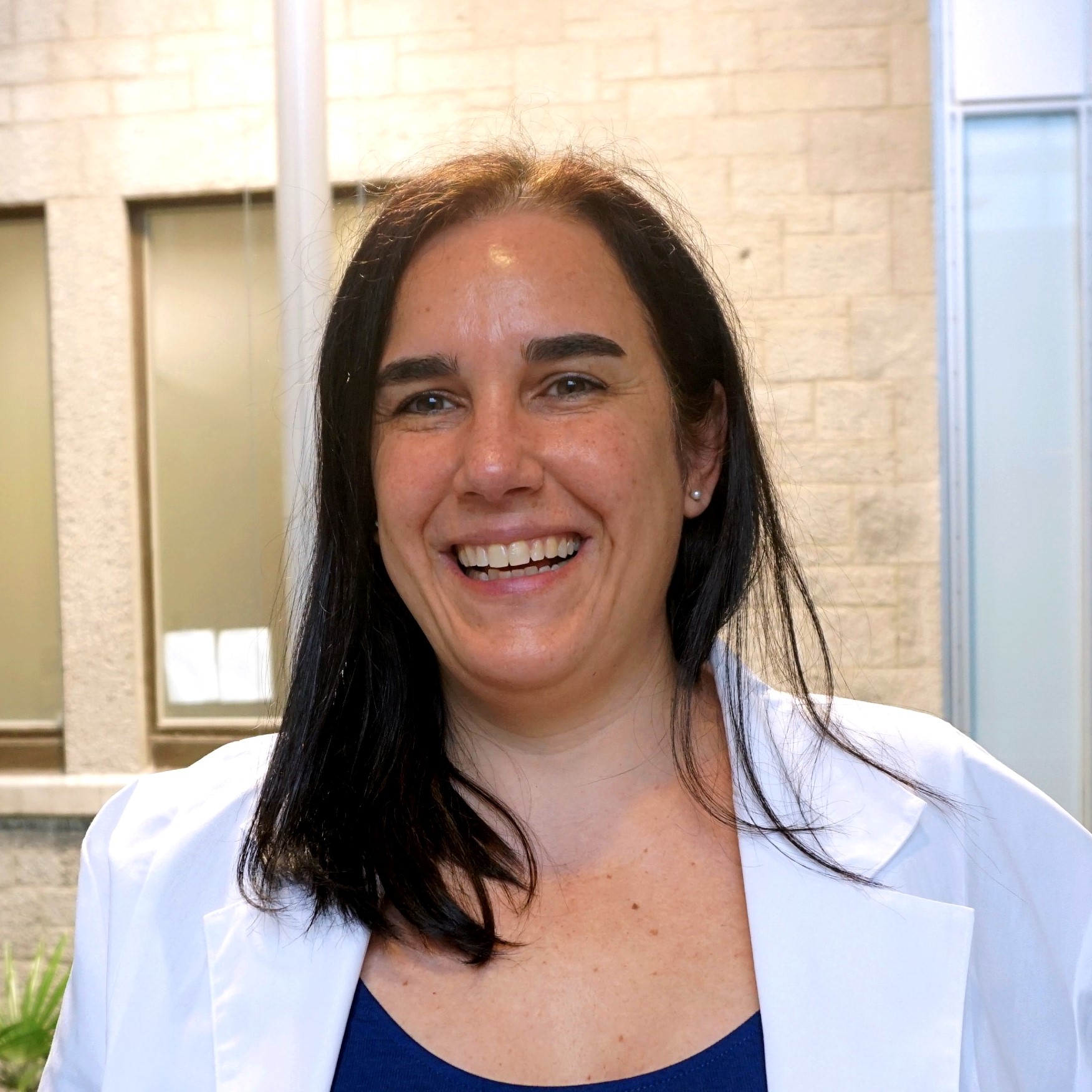CURRENT RECRUITING TRIALS
CONTACT US AT als-cru.neuro@mcgill.ca
CALL (514) 514-398-6183
ALN-SOD-ALS-2351 (SOD1)
First in Human (FIH) Study of ALN-SOD in Adult Participants With Amyotrophic Lateral Sclerosis Associated With Mutation in the SOD1 Gene (SOD1-ALS)
This study is researching an experimental drug called ALN-SOD (called “study drug”). This study is focused on people with amyotrophic lateral sclerosis (ALS) who have a mutation in a gene called the superoxide dismutase-1 (SOD1) gene. This type of ALS is known as “SOD1-ALS”. This is the first time that ALN-SOD will be given to people. The aim of the study is to see how safe and tolerable the study drug is.
The study is looking at several other research questions, including:
- The effect the study drug has on specific biomarkers, which are molecules in the blood or in the fluid that surrounds the brain and spinal cord, known as cerebrospinal fluid (CSF)
- How much study drug is in the blood and in the CSF, at different times
- Whether the body makes antibodies against the study drug (which could make the drug less effective or could lead to side effects)
- What effects the study drug has on ALS symptoms
ALS-DARI-1 (Darifenacin)
A randomized, double-blind, placebo-controlled, single center, trial to test the safety, tolerability, pharmacokinetics and pharmacodynamics of Darifenacin in adults with ALS
The research builds on previous research showing that loss of nerve supply, or denervation, of neuromuscular junctions is one of the earliest pathological events in ALS. The trial strategy is to target neuromuscular junctions to maintain this essential connection between neurons and muscles, thus improving muscle function, preventing muscle mass loss, and improving locomotion and survival.
In addition, the study will capture preliminary data on the effect of the therapeutic on function, and on muscle strength and integrity, to inform subsequent trial designs. Potential biomarkers will also be investigated.
COMBAT-ALS (ibudilast)
From clinicaltrials.gov:
A Phase 2b/3 multicenter, randomized, double-blind, placebo-controlled, parallel group study to evaluate the efficacy, safety and tolerability of MN-166 given to ALS participants for 12 months followed by a 6-month open-label extension phase.
PROJENX PRO-101 (Prosetin)
A Phase 1C study to evaluate the safety, tolerability, pharmacokinetics, and pharmacodynamics of prosetin in ALS patients.
Prosetin is a selective, oral, brain-penetrant, MAP4K inhibitor developed by ProJenX co-founders at Columbia University for the treatment of ALS.
Following the discovery that MAP4K inhibition confers potent motor neuron protection across multiple patient stem cell-derived models of ALS, prosetin was optimized for potency against MAP4Ks, efficacy in motor neuron rescue, and preferential distribution to the CNS.
QURALIS QRL-201
A Multi-Center, Randomized, Double-Blind Placebo Controlled Multiple-Ascending Dose Study to Evaluate the Safety and Tolerability of QRL-201 in ALS
The primary objective of this study is to determine the safety and tolerability of multiple doses of QRL-201 in people living with ALS
REALISE (ARGX 119)
A Safety and Efficacy Study of ARGX-119 in Adult Patients with Amyotrophic Lateral Sclerosis (ALS) (ReALiSe)
A Phase 2a, Double-Blinded, Randomized, Placebo-Controlled, and Active-Treatment Extension Study to Assess the Safety, Tolerability, Efficacy, Pharmacokinetics, and Immunogenicity of ARGX-119 in Participants with Amyotrophic Lateral Sclerosis
This study aims to evaluate the safety of ARGX-119 in adults with ALS. The study will also assess the impact of ARGX-119 on ALS disease outcomes, including muscle function. The study consists of 2 periods: a treatment period when participants will receive one of three ARGX-119 doses or placebo and an extension period when all participants will receive the same dose of ARGX-119. Participation in the study will last up to approximately 100 weeks.
UPCOMING TRIALS
AMYLYX LUMINA (AMX0114)
A Phase 1, Multicenter, Randomized, Placebo-Controlled Multiple Ascending Dose Study to Evaluate the Safety and Tolerability of AMX0114 in Amyotrophic Lateral Sclerosis
This study is a placebo-controlled Phase I study to evaluate the safety, tolerability, pharmacokinetics, and pharmacodynamics of the antisense oligonucleotide (ASO) AMX0114 in adult participants with amyotrophic lateral sclerosis (ALS).
The purpose of this study is to determine how safe and tolerable the investigational drug, AMX0114, is for the treatment of amyotrophic lateral sclerosis (ALS).
AMX0114 is given by intrathecal injection, an injection in the lower back into the spinal canal, also known as lumbar puncture. This clinical trial is designed to test if the treatment is safe and tolerable by monitoring the incidence of adverse events, serious adverse events, dose limiting toxicities (DLTs), and incidence of abnormalities in clinical laboratory assessments, vital signs, physical and neurological examinations, and electrocardiograms (ECGs). This trial will also assess the effects of AMX0114 on biomarkers of ALS, including markers of neuronal death and neuroinflammation.
More information[/button
The Team – ALS

Dr Angela Genge
Principal Investigator

Dr Oliver Blanchard
Principal Investigator

Maria Gobbo
Clinical Research Coordinator

Julia Chiappini
Clinical Research Coordinator
The Team – ALS

Dr Rami Massie
Principal Investigator

Vanessa Bertone
ALS Team Lead

Marie-Lise Béland
Clinical Research Coordinator

Maryam Leclerc
Clinical Research Coordinator
ACTIVE (NOT RECRUITING) TRIALS
AP101-02
A Study to Evaluate, Safety, Tolerability, Pharmacodynamic (PD) Markers and Pharmacokinetics (PK) of AP-101 in Participants With Amyotrophic Lateral Sclerosis (ALS)
The purpose of this project is to evaluate the safety, tolerability, PK, and PD of AP-101 in participants with fALS and sALS.
Eligible participants will be randomized to take the study drug or a placebo by intravenous infusion (IV).
This study includes infusions at Day 1 and a maintenance dose at Day 2 and every 3 weeks until week 24. There is a follow-up after an additional 12 weeks.
CALICO
ABBV-CLS-7262 is an investigational drug being researched for the treatment of Amyotrophic Lateral Sclerosis. This is a 48-week, 2-part study. Part 1 will be a 4-week, randomized, double-blind, placebo-controlled study; Part 2 will be a 44-week active treatment extension (ATE) during which all subjects will receive ABBV-CLS-7262.
DAZALS
A Phase 2, Multicenter, Randomized, Double-Blind, Placebo-Controlled Study Evaluating Safety and Efficacy of CORT113176 (Dazucorilant) in Patients With Amyotrophic Lateral Sclerosis (DAZALS)
The purpose of this study is to assess the safety and efficacy of CORT113176 (dazucorilant) in patients with Amyotrophic Lateral Sclerosis (ALS).
Eligible ALS patients will be randomized to one of three treatment arms (1:1:1) across North America and Europe for a 24-week double-blind treatment period.
Patients who complete participation (i.e., completed all visits) in the double-blind treatment period will be eligible for participation in a 132-week open-label extension (OLE) study. A daily dose of 300 mg dazucorilant will be used in the 132-week OLE period.
Patients that complete the double-blind treatment period and who do not enter the OLE will enter the 132-week follow-up period.
IONIS ION363-CS1 (FUS ALS)
A Phase 1-3 Study to Evaluate the Efficacy, Safety, Pharmacokinetics and Pharmacodynamics of Intrathecally Administered ION363 in Amyotrophic Lateral Sclerosis patients with Fused in Sarcoma mutations (FUS-ALS)
To evaluate the clinical efficacy of ION363 in clinical functioning and survival in Amyotrophic Lateral Sclerosis (ALS) patients with Fused in Sarcomamutations (FUS-ALS).
VERGE Genomics
A study to assess the safety and tolerability of escalating doses of VRG50635, a small molecule inhibitor of PIKfyve, a therapeutic target for ALS
SPOTLIGHT ON OUR RESEARCH
Click to read
